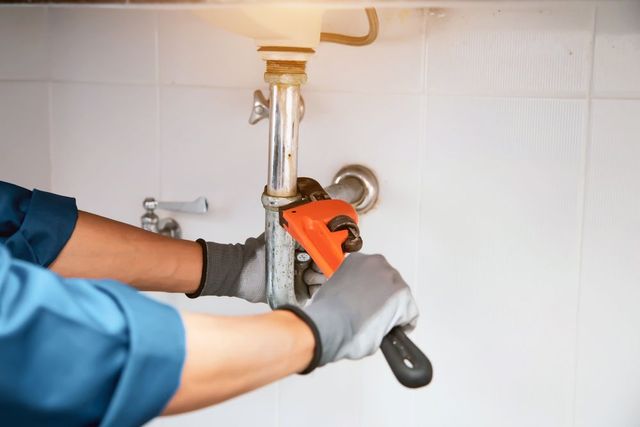Mastering Bathroom Plumbing: Key Guidelines for New Homeowners
Mastering Bathroom Plumbing: Key Guidelines for New Homeowners
Blog Article
Just how do you feel when it comes to 6 Essential Plumbing Checks for New Homeowners?

For brand-new property owners, understanding and keeping washroom plumbing can save both money and time by avoiding pricey concerns down the line. Right here are some necessary restroom plumbing pointers to help you keep whatever running efficiently.
Get Ready For Cold Weather
Secure your pipelines from freezing during cold weather by insulating pipes in unheated locations like basements, attics, and garages. During severe cold, let cold water drip from faucets served by exposed pipelines to aid stop cold.
Set Up Normal Upkeep
Consider organizing yearly evaluations with an accredited plumber. They can spot problems that you might miss out on, such as covert leaks or wear and tear on pipelines and components. Regular upkeep helps prolong the life of your pipes system and can stop emergencies.
Familiarize Yourself with the Main Shut-Off Valve
Understanding where the major water shut-off shutoff is located in your house is important. This permits you to quickly shut off the water supply in case of significant leaks or during pipes emergency situations, avoiding substantial water damages.
Consistently Inspect for Leaks
Little leakages can bring about big issues. Regularly inspect under sinks, around commodes, and near pipes fixtures for any indications of leakages. Seek wetness, little drips, or rust. Capturing and fixing leakages early can protect against more major damages and conserve water.
Keep Your Hot Water Heater
Guarantee your hot water heater is set to an appropriate temperature (commonly around 120 degrees Fahrenheit) to avoid hot and lower energy usage. Flush the storage tank yearly to get rid of sediment accumulation, which can decrease the performance and lifespan of your heating system.
Upgrade Your Components
If your home has older components, consider upgrading to much more effective versions. Modern commodes, showerheads, and faucets are created to make use of less water while offering great pressure, which can considerably reduce your water costs and environmental footprint.
Beware with DIY Plumbing Repairs
While it's alluring to handle all home repairs on your own, be cautious with plumbing. Some issues might need expert knowledge, specifically if they involve primary water lines or sewer repairs. Working with a specialist can often be extra affordable than DIY, specifically if it protects against additional damages.
Don't Ignore Slow Drains Pipes
If your sink or bath tub is draining pipes slowly, it's usually an indicator of an obstruction developing. Resolving this very early can protect against a complete clog. Utilize a bettor or a plumber's serpent to clear out debris. Prevent utilizing chemical drain cleansers as they can harm your pipes over time.
Know What Not to Flush
Toilets are not waste disposal unit. Prevent flushing anything apart from toilet paper and human waste. Products like wipes, feminine health products, and cotton bud need to be thrown away in the trash to stop clogs and sewage system back-ups.
Mount Strainers in Drains
Place filters in your sink and bathtub drains pipes to catch hair and various other debris before they enter your plumbing system. Cleaning the strainers regularly will aid prevent buildup and maintain water flowing freely.
Conclusion
Understanding and maintaining your home's bathroom plumbing can protect against several common concerns. By complying with these essential pointers, you can ensure your shower room stays useful and efficient, conserving you time and money in the long run.
Essential Plumbing Tips for Homeowners: Keep Your Pipes Flowing Smoothly
As a homeowner, understanding the basics of your plumbing system can save you time, money, and a lot of headaches. Plumbing issues can range from minor annoyances like dripping faucets to major problems like burst pipes that cause significant damage. This guide provides essential tips to help you maintain your plumbing system and tackle common issues.
Understanding Your Plumbing System
Supply System: Brings fresh water into your home from a municipal source or a well. Drain-Waste-Vent System: Removes wastewater and vents sewer gases outside. Fixtures and Appliances: Includes sinks, toilets, showers, dishwashers, and washing machines. Basic Maintenance Tips
Regular Inspections: Periodically check for leaks, corrosion, and other signs of wear and tear. Look under sinks, around toilets, and near water heaters. Know Your Main Shut-Off Valve: In case of a major leak, you’ll need to shut off the water quickly. Ensure everyone in your household knows where the main shut-off valve is located. Prevent Frozen Pipes: In cold climates, insulate exposed pipes and let faucets drip during extreme cold to prevent freezing. Use Strainers: Install strainers in sinks and tubs to catch hair, food particles, and other debris that can cause clogs. Common Plumbing Issues and Solutions
Clogged Drains:
Prevention: Avoid pouring grease down the drain and use drain screens to catch debris. DIY Fix: Use a plunger or a plumbing snake to clear minor clogs. For stubborn clogs, a mixture of baking soda and vinegar can sometimes help. Leaky Faucets:
Prevention: Replace washers and seals regularly. DIY Fix: Turn off the water supply, disassemble the faucet, and replace worn parts.

Click Here Report this page